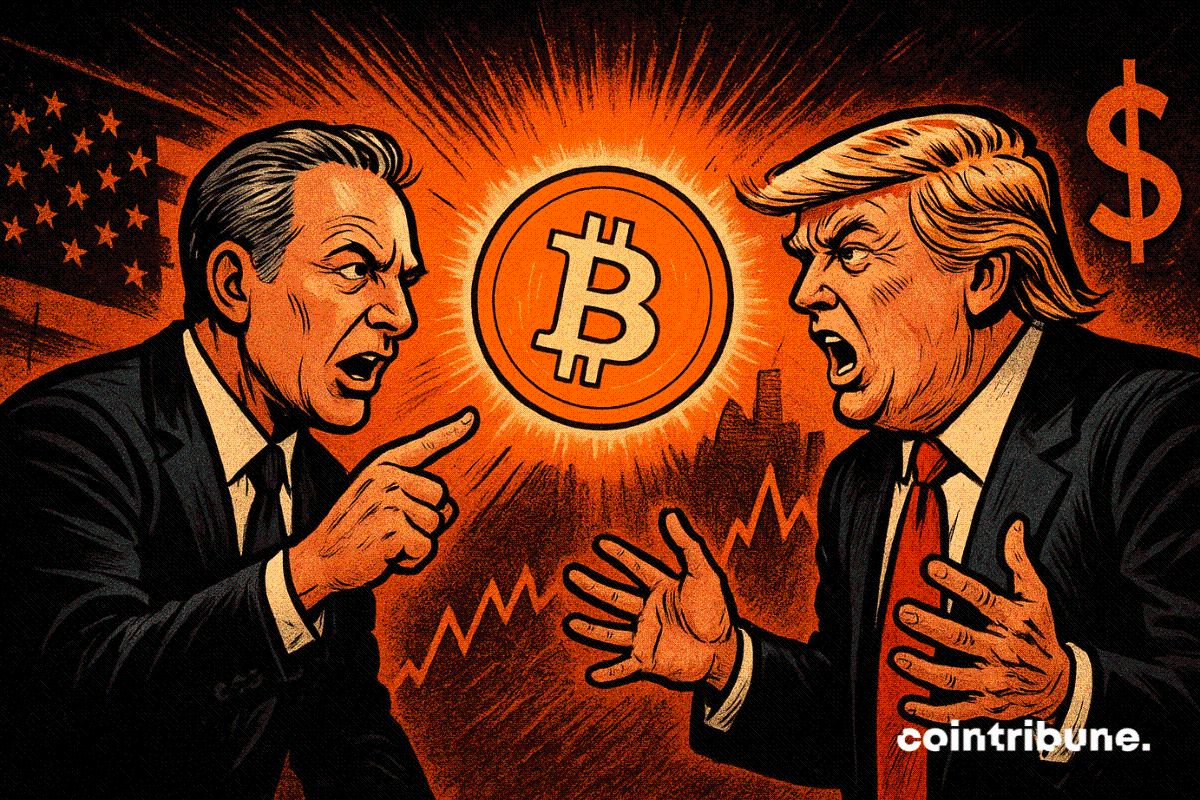Recent reports indicate that companies now have to foster a good relationship with President Trump’s administration to get policy benefits.
The POTUS’ increasing interference in industries and decision-making, which many critics describe as biased in terms of which companies get policy benefits, has become a serious consideration for corporate America.
Loyalty to Trump has become a condition to do business in America
The United States’ President, Donald Trump, has maintained a serious interest in corporate America. However, recent reports claim that his administration now uses loyalty and alignment as a metric to determine which companies will thrive.
The White House has a “scorecard” reportedly ranking more than 500 businesses and trade groups by their support for Trump’s flagship tax and spending agenda, nicknamed “One Big Beautiful Bill” (OB3).
Companies are graded on their visible efforts to champion the president’s priorities, with evidence ranging from press releases and social media campaigns to executives’ appearances at White House events. According to Axios , the document is being used to help guide decisions on corporate requests, ranging from policy exemptions to export licences.
This system comes alongside Trump’s unprecedented intervention in private-sector deals. Last week, Nvidia and AMD secured licences to export chips to China under agreements that allow the U.S. government to collect 15% of the revenues.
Treasury Secretary Scott Bessent has already suggested that the deal, described as “unique,” could be expanded to other companies.
Companies are now courting favor from the White House
Apple’s chief executive, Tim Cook, whose company lost hundreds of billions in market value following Trump’s April tariffs announcement, personally presented the president with a 24-karat gold gift base for a commemorative plaque.
Days later, Apple was spared from Trump’s sweeping new tariffs on chip imports, and the firm pledged a $100B investment in American manufacturing. Apple shares have since climbed 13%.
Similarly, Uber publicly celebrated Trump’s proposal to eliminate taxes on tips, while AT&T highlighted plans to accelerate fiber infrastructure investment tied directly to OB3.
Trade associations such as Airlines for America have also praised the bill’s $12.5B investment in air traffic control. These moves appear to have helped position them as “good partners” in the administration’s eyes.
Cryptocurrency firms, another sector that Trump and his sons have championed, have enjoyed sharp share price increases since his return to the White House. By contrast, Tesla’s value has fallen 17% this year following a clash between Trump and Elon Musk around the withdrawal of subsidies for electric vehicles.
Intel, meanwhile, experienced a temporary share price fall after Trump publicly called for the resignation of its chief executive, though it rebounded on speculation that the administration might buy a stake in the company .
Companies that fall out of favor risk financial damage, while those aligned with the administration can benefit almost overnight.
“One thing that’s easy to predict is there’s going to be policy volatility and chaos across all sectors,” Shep Perkins, the chief investment officer at Putnam Investments, said. “President Trump likes deals.”
While it is not unusual for presidents to steer industrial policy, Trump’s approach takes a direct, personal, and public nature. It creates a system of unease that offers the administration a mechanism to reward or punish based on perceived alignment.
It’s unknown where the hammer might fall next. Goldman Sachs chief executive David Solomon recently drew Trump’s ire after warning about the economic risks of tariffs.
The president dismissed Solomon’s concerns, even mocking his past hobby as a DJ. Trump has also sparred with JPMorgan Chase and Bank of America, claiming they rejected deposits exceeding $1B, and has issued an executive order barring banks from discriminating against clients on political grounds.
A White House list published this summer shows sweeping increases in imports from countries including Brazil , Canada, and Switzerland, while tariffs on Mexico remain paused and negotiations with China continue.
Analysts have warned that the U.S. may begin to resemble China’s policy unpredictability in the eyes of investors. In 2021, Beijing’s sudden crackdowns on education and technology companies erased billions in value overnight, leading some foreign investors to view its markets as uninvestable.
Although the U.S. is not yet at that point, some observers fear it is only a few unsolicited interventions away.
KEY Difference Wire helps crypto brands break through and dominate headlines fast



